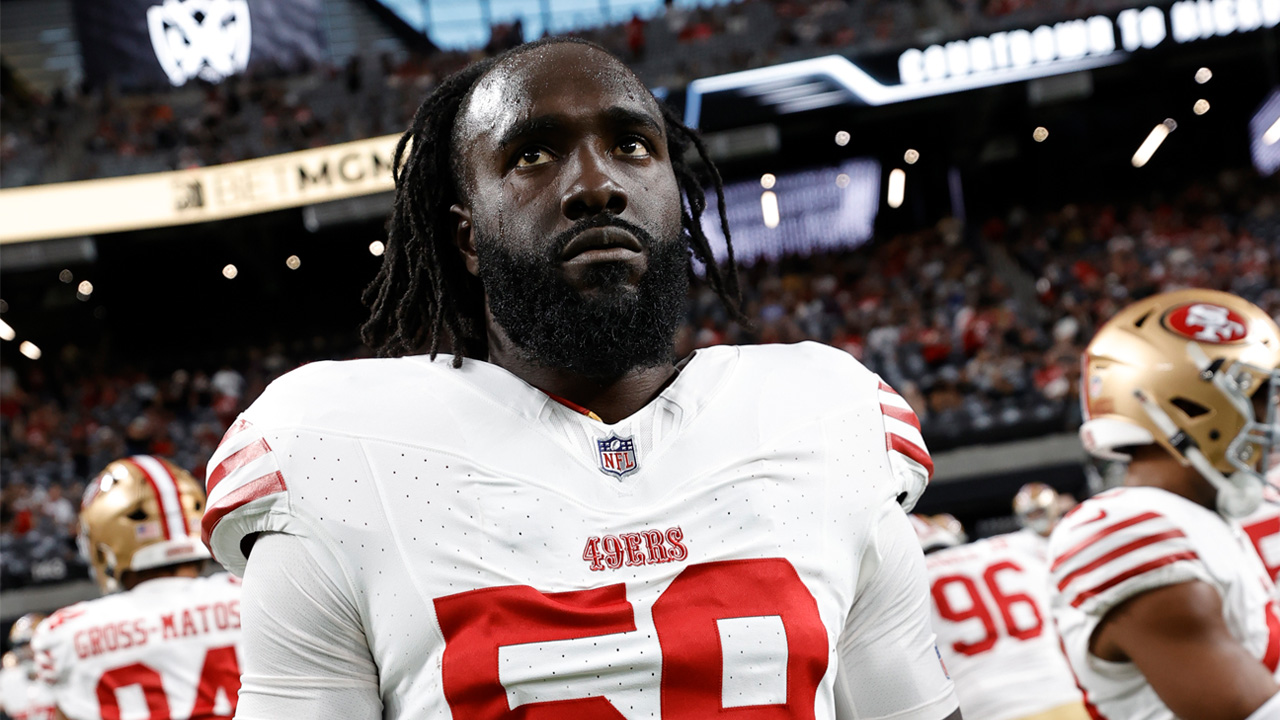The Detroit Lions' last road playoff victory came one week before they won their last NFL championship.
In 1957, the Lions traveled to Kezar Stadium in Golden Gate Park and produced an amazing comeback victory over the 49ers.
Stay in the game with the latest updates on your beloved Bay Area and California sports teams! Sign up here for our All Access Daily newsletter.
Since then, the organization has lost 11 consecutive road playoff games.
And when Detroit comes to Levi’s Stadium on Sunday for the NFC Championship Game, they enter with a 13-game head-to-head road losing streak against the 49ers. That streak includes the only playoff matchup between the two teams in the Super Bowl era.
Here is a look at the only two postseason matchups between the franchises:
1957 Western Conference playoff
San Francisco 49ers
Find the latest San Francisco 49ers news, highlights, analysis and more with NBC Sports Bay Area and California.
More than a decade before Super Bowl I, the Lions were a professional football power with three league titles during a six-year span.
In those days, there were no conference playoffs. The winner of the Western Conference played the Eastern Conference winner for the NFL championship.
But in 1957, the Lions and 49ers tied with 8-4 records, and a playoff was necessary to decide which team would advance to face the Cleveland Browns for the NFL championship.
The 49ers blew a huge second-half lead, as the Lions rallied for 24 unanswered points. The Lions came back for a 31-27 victory, then went on to blow out the Browns, 59-14, one week later at Briggs Stadium in Detroit to win the NFL championship.
That 49ers’ loss stuck with two-time Super Bowl-winning coach George Seifert. He worked as an usher games in 1957 and ’58 while he was a student at since-closed Polytechnic High, located across the street from Kezar Stadium.
“I tell you, that was a gloomy occasion," Seifert said years ago. "Losing the playoff to Detroit was such a letdown. But feeling that gloom in 1957 made the victories of the 1980s and 1990s that much better.”
The 49ers had a star-studded team in 1957 and had complete control of the game after quarterback Y.A. Tittle opened the scoring with an “alley-oop” touchdown pass to a leaping R.C. Owens, the man who inspired the term that is commonplace in basketball lexicon.
The 49ers led 24-7 at halftime, and kicker Gordy Soltau added a field goal early in the third quarter to extend the lead to 20 points.
Then, the 49ers fell apart in a game that ripped the hearts out of past generations of Bay Area football fans.
1983 NFC divisional round
The 49ers won the franchise’s first Super Bowl two years earlier. Coach Bill Walsh later admitted that a drug problem on the team contributed to a disappointing 1982 season.
But the 49ers were back as contenders in 1983.
They were 7 1/2-point favorites for their matchup at Candlestick Park against the Lions, the NFC Central champs under former 49ers coach Monte Clark.
The game was far from a masterpiece, as the 49ers committed three turnovers and the Lions were even more sloppy.
Lions quarterback Gary Danielson threw five interceptions. But running back Billy Sims scored two fourth-quarter touchdowns to give the Lions a 23-17 lead and set the stage for Joe Montana’s heroics.
Montana marched the 49ers down the field and capped a nine-play, 70-yard touchdown drive with a 14-yard touchdown pass to Freddie Solomon with 1:23 remaining.
The Lions had a chance to win it, but kicker Eddie Murray missed a 43-yard field goal wide right with :05 remaining, and the 49ers escaped with a 24-23 victory.
The following week, the 49ers lost to Washington, 24-21, in the NFC Championship Game.
Controversial penalties on defensive backs Ronnie Lott and Eric Wright set up the go-ahead points. The 27-yard penalty on Wright came on a Joe Theismann pass for Art Monk that the 49ers thought was clearly uncatchable and, therefore, not a penalty.
"It was a ball a 10-foot tall Boston Celtic couldn't catch, let alone a receiver,” Walsh said after the game.
Download and follow the 49ers Talk Podcast


